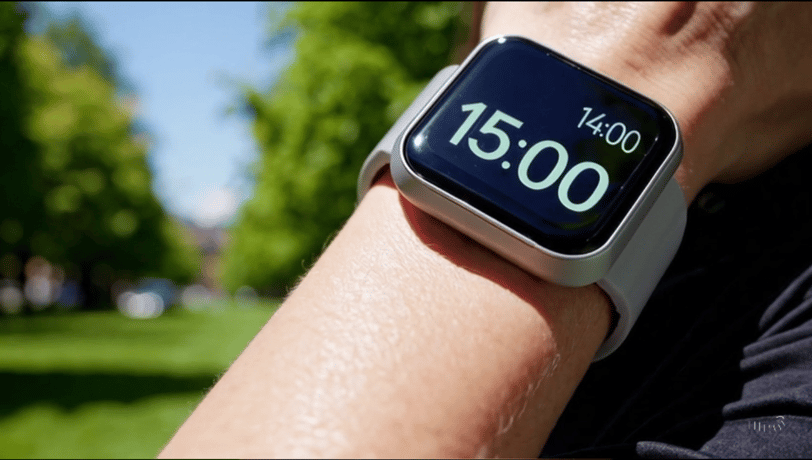Next-Gen Wearables: Health Monitoring Takes Center Stage
1/11/20254 min read


The Evolution of Precision Biometrics
The realm of wearable technology has undergone a remarkable transformation, evolving from simplistic devices that primarily tracked steps and heart rates, to sophisticated monitors capable of measuring a wide array of complex health metrics. Today's next-generation wearables exemplify profound advancements in precision biometrics, allowing users to monitor vital health indicators such as blood oxygen levels, glucose levels, and real-time stress indicators. This evolution has significantly expanded the role of wearables, making them essential tools in personal health management.
Recent innovations in sensor technology have paved the way for the development of accurate and reliable health-monitoring devices. Utilization of optical sensors, microelectromechanical systems (MEMS), and advanced algorithms has enhanced the capacity of wearables to collect and analyze data more effectively. For instance, the incorporation of photoplethysmography (PPG) has led to significant improvements in heart rate variability monitoring, directly contributing to better stress management and overall cardiovascular health assessments. These devices can now capture minute physiological changes and provide users with actionable insights based on their health data.
Moreover, the introduction of continuous glucose monitoring (CGM) has transformed diabetes management, allowing individuals to track their glucose levels in real-time without invasive procedures. This not only empowers users to make informed decisions about their dietary and lifestyle choices but also signifies a shift toward preventative health strategies. The ability of wearables to provide integrated health profiles, including stress metrics derived from heart rate variability, correlates with mental well-being, thus indicating a broader recognition of the interconnectedness of physical and mental health.
As precision biometrics in wearables continue to advance, they promise to further revolutionize personal health management. The accuracy and accessibility of these technologies enhance users' ability to maintain their health proactively, leading to a more informed society that actively engages in their health journeys.
Stylish Designs: Merging Functionality with Fashion
Wearable technology has experienced a significant transformation, evolving from basic, utilitarian gadgets to stylish accessories that complement personal aesthetics. Today’s health monitoring devices, such as fitness watches and trackers, are no longer constrained by traditional bulky designs. Instead, they have been meticulously crafted to resemble luxury jewelry and high-end fashion accessories, appealing to a broader audience. This shift reflects an increasing recognition of the importance of design in consumer electronics, particularly in the realm of health and fitness.
Numerous brands have embraced the idea of merging style with functionality. For instance, companies like Apple and Garmin have introduced fitness trackers that feature sleek lines, customizable bands, and vibrant displays. These devices have transcended their primary role of health monitoring, becoming sought-after fashion statements. Moreover, brands such as Fossil and Withings have generated an array of stylish smartwatches that not only track health metrics but also offer aesthetic variety, catering to diverse tastes and styles.
This trend towards stylish wearables is crucial for encouraging broader adoption of health-monitoring technology. As design becomes a key factor in purchase decisions, consumers are more inclined to integrate these devices into their daily lives. A stylish health monitor not only attracts attention but also instills a sense of pride in ownership, making it increasingly common for people to wear these devices in various social settings. Consequently, practicality is enhanced when aesthetics play a significant role, leading more individuals to engage with their health data actively.
In summary, the convergence of form and function in the design of next-gen wearables signifies a pivotal step forward in health technology. By prioritizing style alongside health monitoring capabilities, brands are reshaping consumer perceptions, ultimately fostering a culture where wellness is not only measurable but also fashionable.
The Power of Adaptive Coaching through AI
The rapid advancement of artificial intelligence (AI) has fundamentally transformed the landscape of personal health and fitness management. Specifically, adaptive coaching has emerged as a revolutionary feature in next-generation wearables, designed to provide users with highly tailored health experiences. These AI systems analyze continuous streams of biometric data such as heart rate, activity levels, sleep quality, and even stress indicators. By leveraging this information, AI algorithms create personalized workout routines and health tips tailored to individual needs, preferences, and goals.
Popular wearables such as the Apple Watch, Fitbit, and Garmin now incorporate adaptive coaching capabilities. For instance, the Fitbit Premium service utilizes AI to analyze user data, thereby offering personalized exercise recommendations and nutrition plans. Similarly, the Apple Watch provides users with insightful health notifications that guide them towards healthier habits, encouraging more active lifestyles. Garmin also employs adaptive coaching with its advanced fitness tracking devices, enabling users to optimize their training regimens based on real-time performance metrics.
The benefits of adaptive coaching through AI go beyond mere convenience; they provide critical insights that empower users to make informed decisions about their health. Personalized recommendations facilitate gradual progress, reduce the risk of injury, and promote consistent engagement in physical activity. Moreover, as these wearables continuously learn from user data, they adapt their suggestions, further enhancing the relevance and effectiveness of the guidance provided. This ongoing personalization leads to a more effective approach in achieving health and fitness goals, catering to individual lifestyles rather than adopting a one-size-fits-all model.
Overall, the integration of AI in wearable technology signifies a shift towards more intelligent personal health monitoring systems, emphasizing the importance of adaptive coaching in fostering healthier habits and achieving long-term fitness aspirations.
Why Next-Gen Wearables Matter
The evolution of next-gen wearables has significant implications for personal health management, transforming how individuals engage with their well-being. These advanced devices offer comprehensive health monitoring capabilities, empowering users by providing them with crucial data about their physiological status. From tracking vital signs like heart rate and blood oxygen levels to monitoring sleep patterns and physical activity, this technology facilitates a deeper understanding of one’s health.
Next-gen wearables also play a pivotal role in the early detection of potential health issues. With continuous monitoring, users can observe anomalies that might require further investigation, enabling timely interventions. This proactive approach to healthcare is instrumental in shifting the focus from reactive to preventive measures, allowing individuals to make informed decisions regarding their health. For instance, if a wearable device signals irregularities in heart rhythm, the user can consult with a healthcare provider sooner rather than later, potentially averting serious complications.
The societal implications of next-gen wearables extend beyond individual health. As more people adopt these health platforms, there is a collective shift towards a more preventative healthcare model. This movement encourages healthcare systems to adapt, prioritizing wellness and early intervention strategies over traditional treatment paradigms. Further, these devices promote increased personal agency in health management, allowing individuals to take control of their health outcomes. With easy access to real-time data, users can engage in meaningful conversations with healthcare professionals, fostering a collaborative approach to health management.
Overall, the integration of next-gen wearables into daily life signifies a crucial advancement in health empowerment. As individuals gain unprecedented insights into their health, the potential for improved health outcomes and a more proactive approach to personal well-being becomes increasingly evident.
